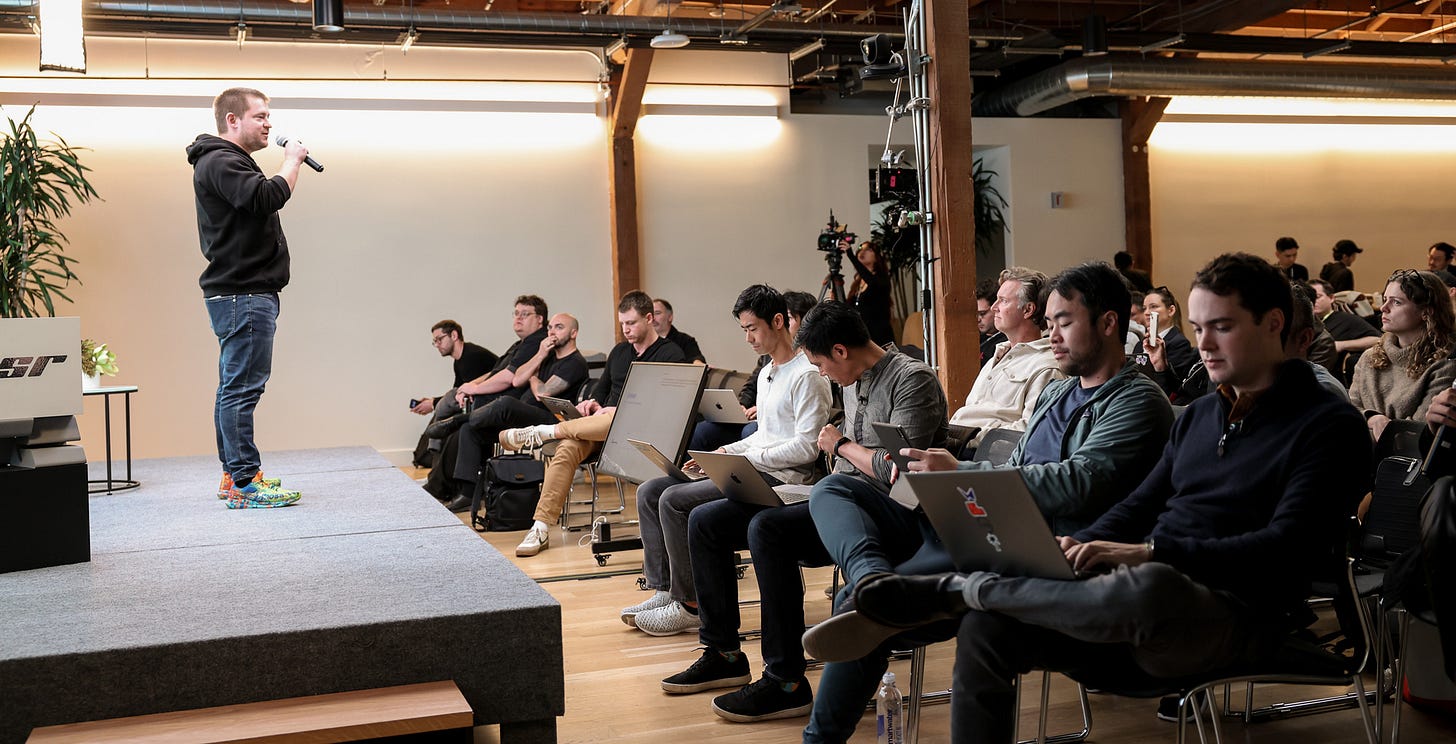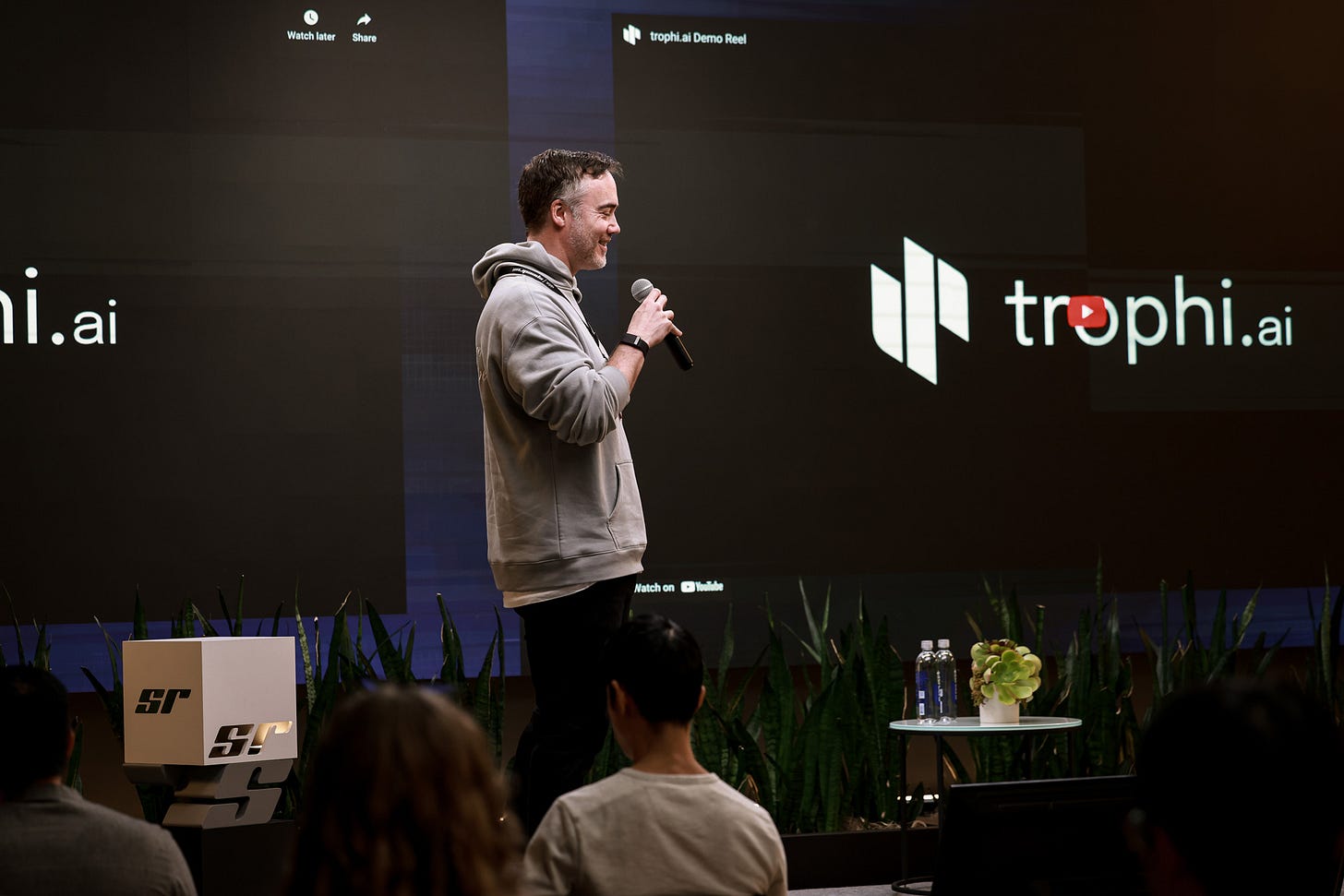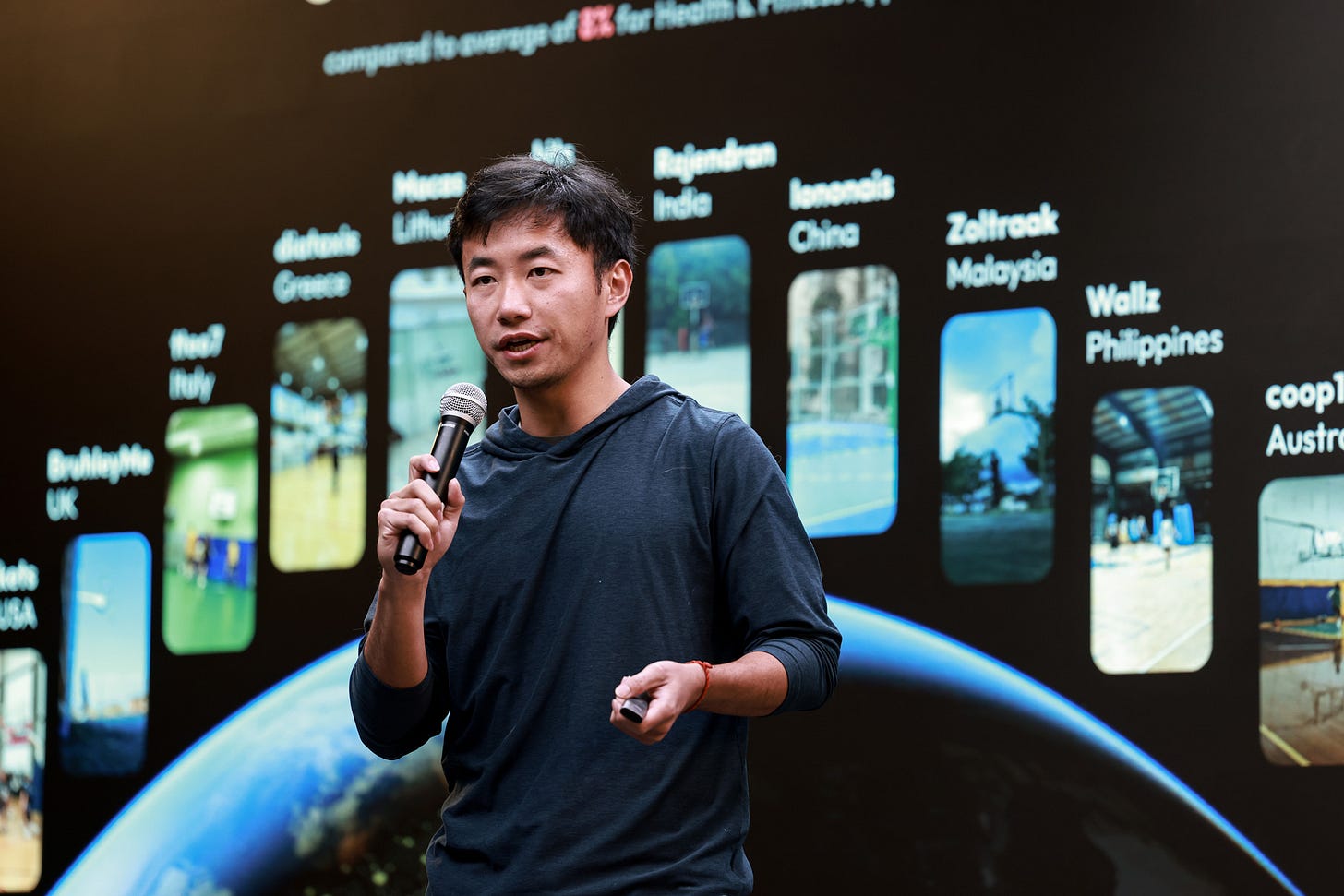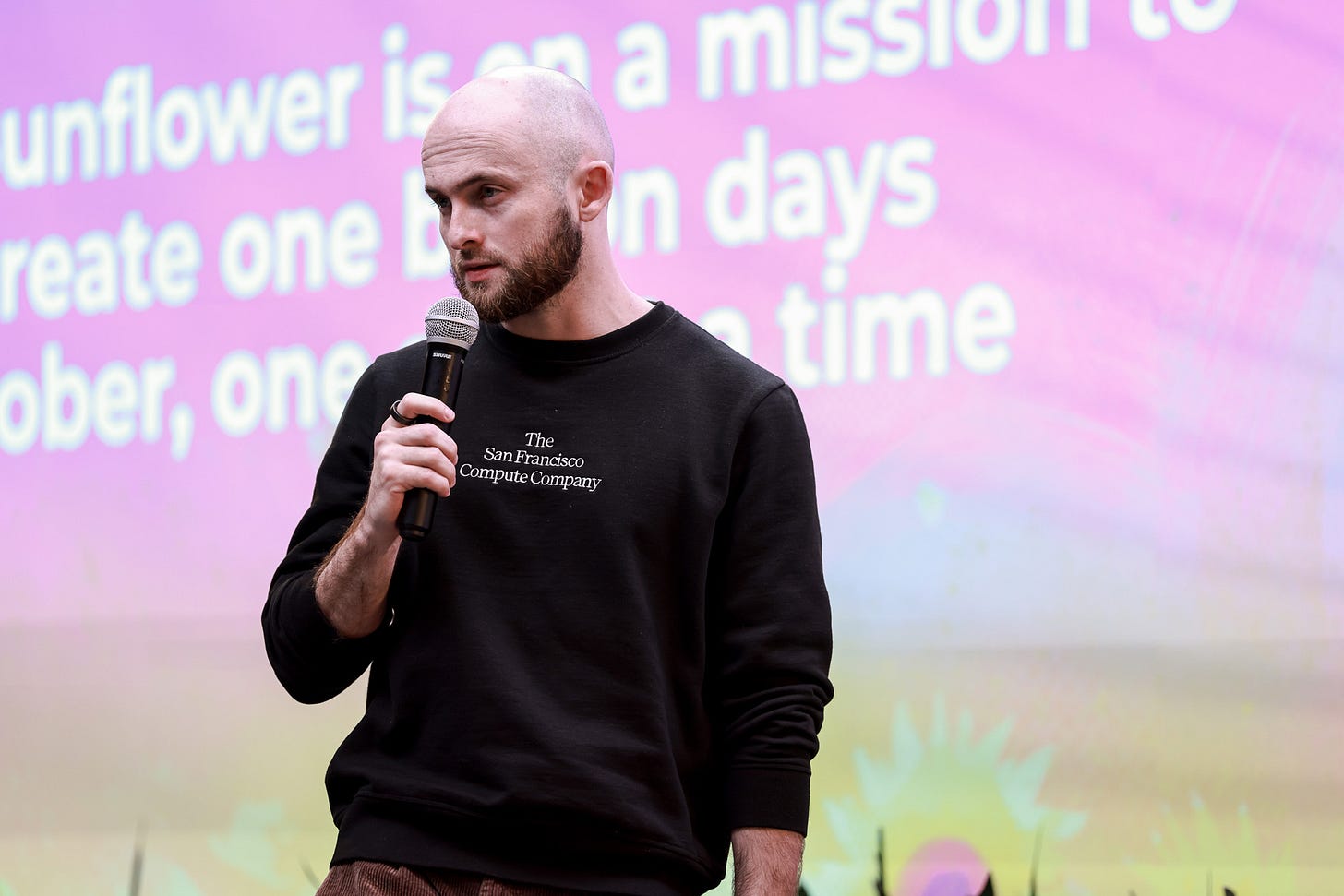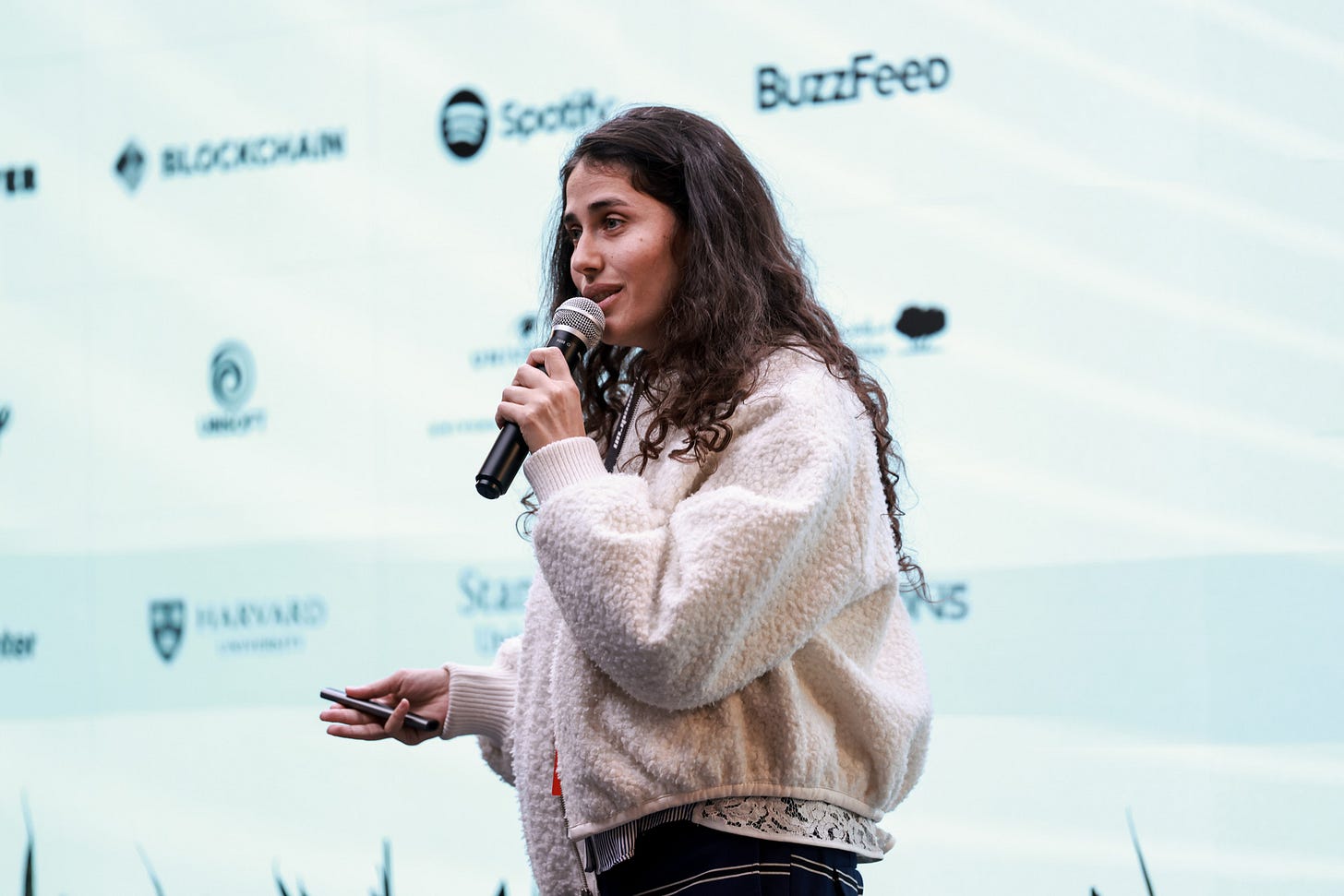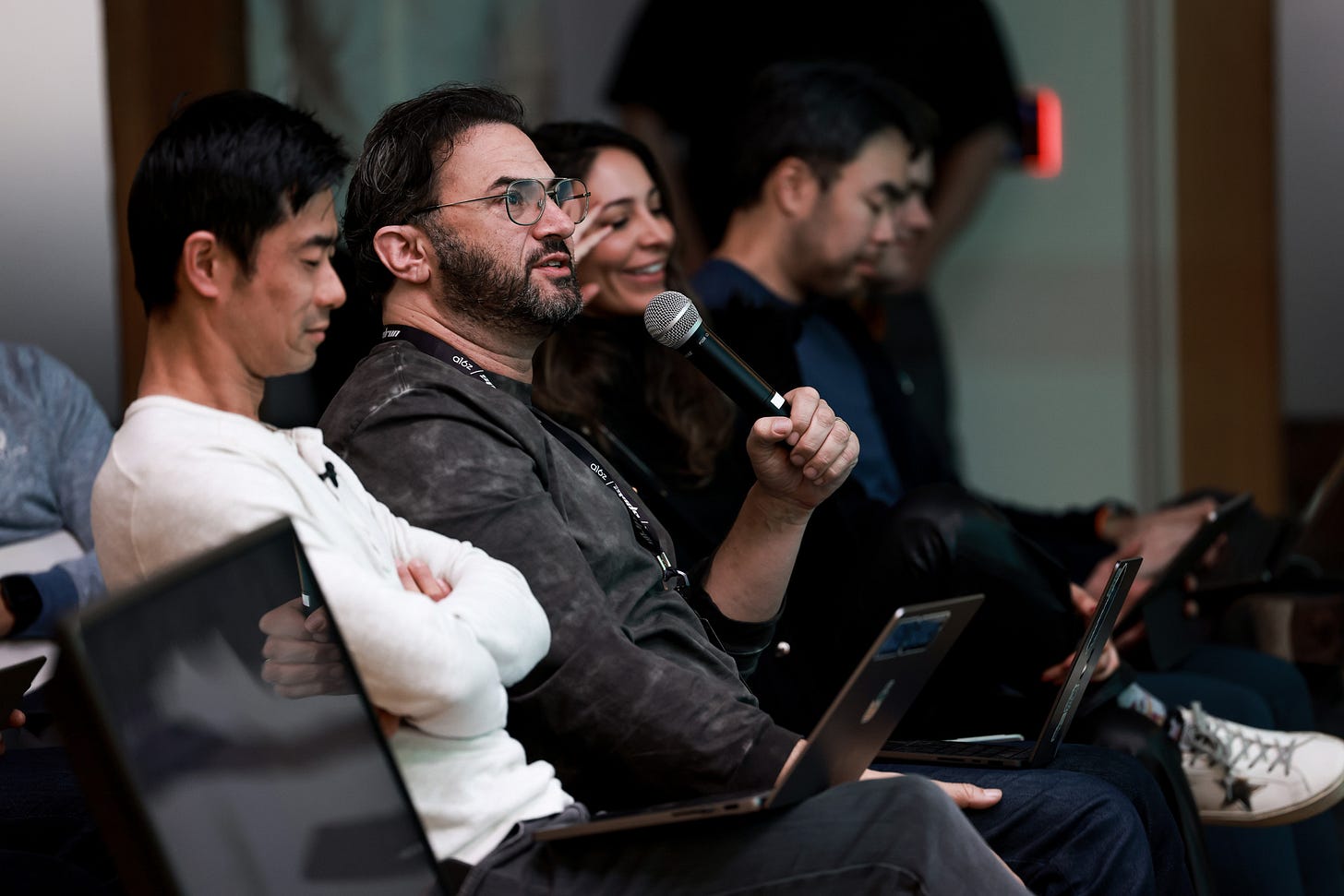How to Pitch Your Startup
Behind-the-scenes as 49 startup founders pitch at a16z speedrun's "Progress Day"
Earlier this month, founders of 49 startups gathered on the third floor of a16z’s San Francisco office.
It was time to pitch.
The format at a16z speedrun’s “Progress Day” can feel brutal—each team gets only two minutes to pitch their company on stage before an audience of their peers. In the front row, a panel of investors pecks away at laptops. At the end of the two minutes, they call out feedback and note areas for improvement.
This is, after all, only a practice run. Progress Day comes roughly six weeks into the 12 week speedrun program, and is intended to get the founders ready for speedrun’s concluding event: Demo Day. That’s where the real pitch before a crowd of 200+ investors will occur.
But still, the stakes at Progress Day feel high. Many founders confessed to nerves before and after their turn to present. “It’s like taking your entire existence over the past year and boiling it down into two minutes,” said Natan Voitenkov, co-founder of Genway AI.
Different Vibes When Live
In some ways, it can come as a surprise to hear founders confess to nervousness about their Progress Day pitches. By virtue of having already been accepted into the latest class of speedrun, each has a pitch among the top 1% of applicants a16z reviewed. But there are many stark differences between a 30-45 minute pitch over a video call and a 2-minute presentation in front of a live audience.
“It’s hard to read a crowd,” says Mike Winter, founder of Trophi.ai. “Sometimes there are no faces that you can read, no one nodding. You’re like man, this isn't hitting. But you just have to go.”
Winter has a novel strategy for powering through these hard-to-read moments: “I just assume I’m kicking ass,” he says. “And then I can find out how it was received later.”
Mike Wu, co-founder of Hooper, says that pitching at Progress Day made him realize how important his perceived energy level on stage can be. “The feedback I'm getting is: chug a Red Bull, get on stage, jump around a little bit,” Wu says with a laugh. “Especially for a consumer product like ours, you have to be excited.”
The Prep Plan
As the deadline for Progress Day neared, some founders began to second-guess their pitch. “I kind of messed up,” confessed Sunflower founder Koby Conrad. “I was going back and forth with our designer on iterations, and I had to beg on Friday night for an extension.”
In the final two days before his Progress Day pitch, Conrad says he spent hours talking through his pitch out loud. “I was like, in the back alley behind the a16z office doing it,” he says, “and during the lunch break in between pitches I climbed up on stage to get a look at the crowd while no one was watching me.”
The practice paid off: Conrad’s presentation was well-received by the judges.
Advice on Pitching from a16z speedrun Founders
“Go as simple as possible. Don't use complicated lingo, don't use complicated charts, don't try to sound sophisticated. You don't need that.” —Natan Voitenkov, co-founder of Genway AI.
“Your pitch has to be timely—why now? An idea that could have been done 10 years ago would have been done. If you’re not on a wave, you’re in slow water.” —Mike Winter, founder of Trophi AI
“One of the tendencies we had at first was trying to fit 10,000 different stories into the deck. But you just gotta pick one and tell a simple story that you think fits.” —Mike Wu, co-founder of Hooper
Conrad, a third-time founder, says although preparing for Progress Day was stressful, it’s also valuable. “It was a little nerve-wracking man,” he says. He says that at one point during his talk, he slipped up when referencing a customer testimonial and referenced ”a 32-year-old grandmother.” (The real customer is in her 60s.) “I didn't even realize until after, when someone told me I said that,” Conrad says.
These sorts of slip-ups aren’t a big deal. And besides, Demo Day is still weeks away. But Conrad is feeling the pressure:
“It’s like, holy shit, I'm gonna have to go present to all these investors, I better get my butt in gear,” he says. “I'm glad I have way more time for Demo Day now because I'm gonna practice 24-7.”
💡 More Big Ideas
📅 Andrew Chen wrote a Substack post distilling many years of wisdom conducting interviews, called The 30 min interview for people with busy calendars.
🤝 Last week our own Macy Mills interviewed Jesse Zhang from Decagon. Zhang shared 5 crucial tips for running Founder-Led Sales: including especially how to land that all-important first enterprise customer.
🥤 Samira Behrouzan insists that blending Soylent and Diet Coke is a good idea
💼 There are currently over 400 open jobs listings across our portfolios. Join our talent network for more opportunities. If we see a fit for you, we'll intro you to relevant founders in the portfolio.
That’s it for this week. If you haven’t already subscribed, it’s time to lock in. We’ll see you next Tuesday.



